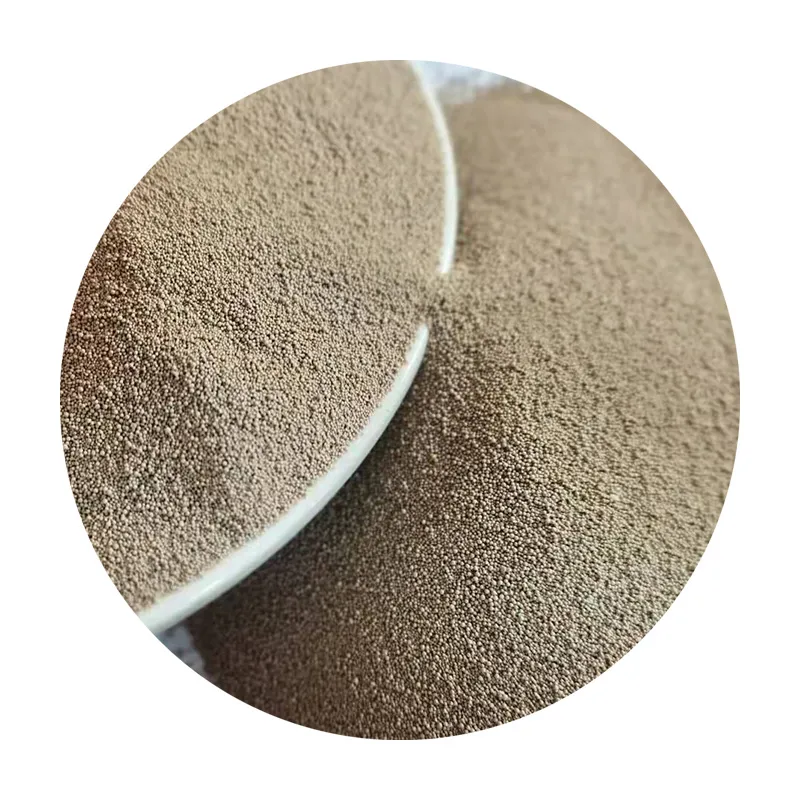For foundries seeking precision, surface quality, and consistent casting performance, resin coated sand delivers a level of efficiency that traditional molding materials simply can’t match. From general-purpose cast iron to high-precision aluminum or steel, resin coated sand is increasingly the go-to choice across the metal casting industry. Its ability to enhance dimensional accuracy, reduce defects, and improve productivity makes it a transformative material for any metal casting application.

Can Resin Coated Sand Be Applied to Different Types of Metal Casting?
One of the primary reasons resin coated sand has become widely adopted in foundries worldwide is its adaptability. This advanced resin sand can be tailored to match a broad range of casting metals—from non-ferrous aluminum to ferrous alloys such as grey iron, ductile iron, and stainless steel.
Unlike traditional green sand, which is prone to moisture sensitivity and gas defects, resin coated sand is pre-cured with thermosetting resin, allowing it to maintain strength under high temperatures. This makes it ideal for shell molding and core-making processes where various metal compositions are used. Whether it's automotive components, valves, pumps, or turbine housings, resin coated sand offers the dimensional integrity and mold stability necessary for consistent results.
Additionally, leading resin coated sand manufacturer facilities now provide specially formulated grades optimized for specific metals. These formulations adjust grain size, resin percentage, and thermal decomposition characteristics to suit exact casting conditions, ensuring that foundries can produce high-quality castings regardless of the metal type.
Can Resin Coated Sand Be Used for High-Precision Liquid Metal Casting?
Precision is paramount in modern engineering—and resin coated sand rises to the challenge. For applications involving high-performance liquid metal casting, where tight tolerances and minimal porosity are essential, resin sand molds and cores outperform conventional alternatives.
In high-precision automotive, aerospace, and hydraulic component manufacturing, the surface smoothness and reduced mold wall erosion of resin coated sand allow for excellent casting definition. Fine and uniform grain distribution supports excellent flowability of the molten metal, minimizing turbulence and helping eliminate cold shuts or misruns. It also exhibits low gas evolution during pouring, which drastically reduces the chance of blowholes or pinholes in the final product.
In fact, many premium resin coated sand manufacturer brands now offer high-performance grades specifically developed for aerospace turbine blades, aluminum transmission housings, and electric motor components. These grades are engineered to perform in complex mold geometries and high-heat environments, making resin coated sand the industry’s preferred material for demanding applications.
How Resin Coated Sand Improves Dimensional Stability of Castings
Dimensional accuracy is critical in casting—any deviation can compromise the functionality or assembly of a component. Here’s where resin coated sand truly shines. It provides outstanding dimensional control thanks to its superior thermal stability and uniform curing behavior.
The secret lies in the way resin sand behaves during the casting process. Since the sand particles are uniformly coated with a thermosetting resin, they bond together precisely during the mold curing stage. This forms a high-strength shell mold or core that resists thermal expansion and deformation under the intense heat of molten metal.
This means that the resin coated sand holds its shape, ensuring the internal geometry of the mold or core does not shift or expand. As a result, the final casting comes out closer to the intended design, reducing the need for post-machining and secondary adjustments. For manufacturers seeking to reduce scrap and improve dimensional repeatability, resin coated sand is a clear value-add.
Furthermore, resin coated sand manufacturer labs continuously refine the formulation to enhance thermal conductivity and resin cure behavior, pushing the boundaries of what’s possible in high-tolerance manufacturing.
Resin Coated Sand Price and Market Demand Trends
As technology advances and more foundries turn toward automated molding and core-making systems, the demand for resin coated sand continues to grow. This upward trend has created competitive market pricing and more accessible high-performance materials.
The resin coated sand price today is influenced by resin quality, base sand type, and packaging specifications. While resin coated sand price may be higher than untreated silica sand, the advantages far outweigh the initial cost. Foundries benefit from reduced cycle time, lower defect rates, and less post-processing—leading to improved overall profitability.
For high-volume production lines, many resin coated sand manufacturer brands offer bulk pricing and logistics support, reducing per-ton costs significantly. Additionally, with environmental regulations tightening worldwide, resin coated sand is being reformulated to meet stricter emissions standards while maintaining strength and usability—enhancing its value even further.
The global availability of resin coated sand has also improved. With regional manufacturing hubs and faster delivery systems, foundries in Asia, Europe, and the Americas can access customized products tailored for their local casting requirements without significant delays or surcharges.
Resin Coated Sand FAQs
Can resin coated sand be used for all types of metal casting?
Yes, resin coated sand is highly versatile and can be formulated for ferrous and non-ferrous metal casting. It performs exceptionally well in shell molding and core applications for iron, steel, and aluminum castings.
Is resin coated sand suitable for precision components like turbine blades or pump parts?
Absolutely. Resin coated sand is ideal for high-precision casting applications due to its thermal stability, dimensional accuracy, and minimal gas evolution during casting.
How does resin coated sand improve the final casting quality?
By forming high-strength molds and cores that resist thermal distortion, resin coated sand enhances dimensional stability, reduces casting defects, and ensures smoother surfaces.
What factors affect the resin coated sand price?
The resin coated sand price depends on resin content, grain size, base sand type, and packaging. Bulk orders from trusted resin coated sand manufacturer sources often offer competitive rates.
Where can I find a reliable resin coated sand manufacturer?
Top resin coated sand manufacturer companies offer custom formulations, fast delivery, and quality assurance. Look for suppliers with ISO certifications and technical support to get the best value for your production line.
Post time:lip . 05, 2025 16:08Next:Golden Sand: The Precision Catalyst for High-Quality Casting Results
